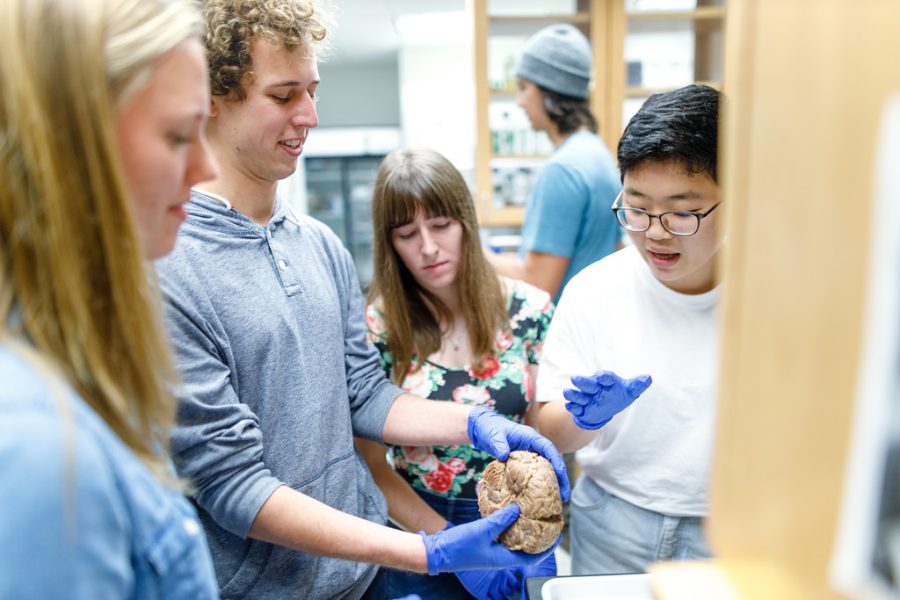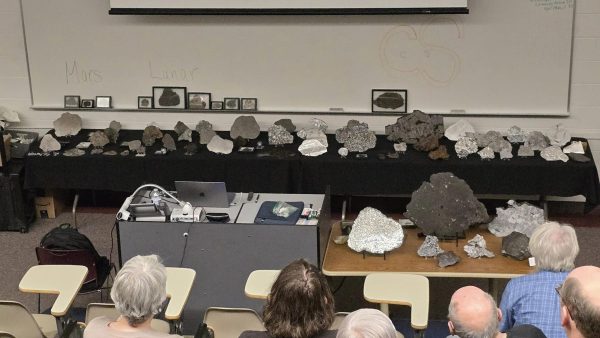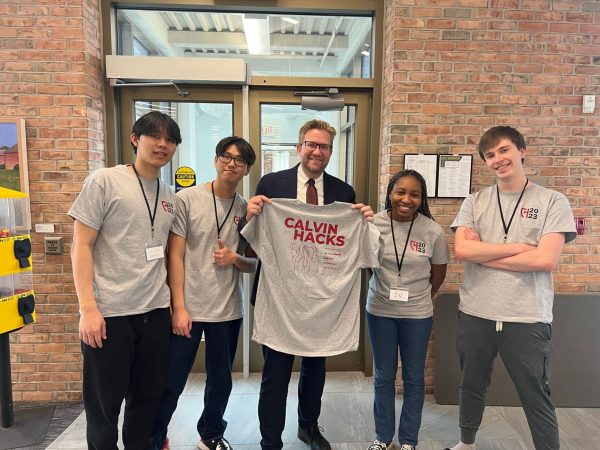New STEM-related cohort programs to launch in next two years
Photo by Calvin Marketing
Calvin will launch two new cohort programs in the next two years. The Sustainability Fellows will begin in fall 2023 and the first group of Health Ambassadors will start in fall 2024. Both programs are open to incoming students from all majors and divisions on campus and aim to have 20-24 students in each year. Incoming first-year students will only be allowed to participate in one of the cohort programs that Calvin offers. They are not available to current students.
The Sustainability Cohort was born from a desire of Provost Noah Toly and faculty to increase Calvin’s leadership in sustainability practices, particularly among Christian colleges, according to engineering professor and sustainability cohort leader Julie Wildschut.
The cohort is designed to be interdisciplinary. Led by faculty from multiple departments, including engineering, economics and business, the group will serve as a center of gravity for sustainability initiatives. It will welcome participants from all backgrounds.
First-year students in the cohort will take the same section of core 100. Each spring, the separate grades will come together to participate in sustainability action workshops, allowing first-year students to gather with their older counterparts to address sustainability issues on campus and in the wider Grand Rapids community.
“We want to be working to make the community a better place to promote flourishing for all of our communities, even while we’re still in college,” Wildschut said.
The Health Ambassadors program will broadly focus on improving the health and wellbeing of communities, according to Julia VanderMolen, who is a main point of contact for Calvin’s cohorts. Like the Sustainability Fellows, the program hopes to recruit students from all disciplines to participate. The full list of courses and activities has not yet been finalized.
Wildschut noted that, even though current Calvin students are not eligible to participate in the new programs, she hopes that the cohorts will serve as a hub of activity and leadership. The sustainability cohort, for example, will develop leaders who can take ownership of Calvin’s own sustainability initiatives.
“There’s naturally going to be an outpouring of sustainability-related activities on campus,” Wildschut said. “This cohort will be a center nucleus but it’s going to pour out into the greater Calvin community.”






